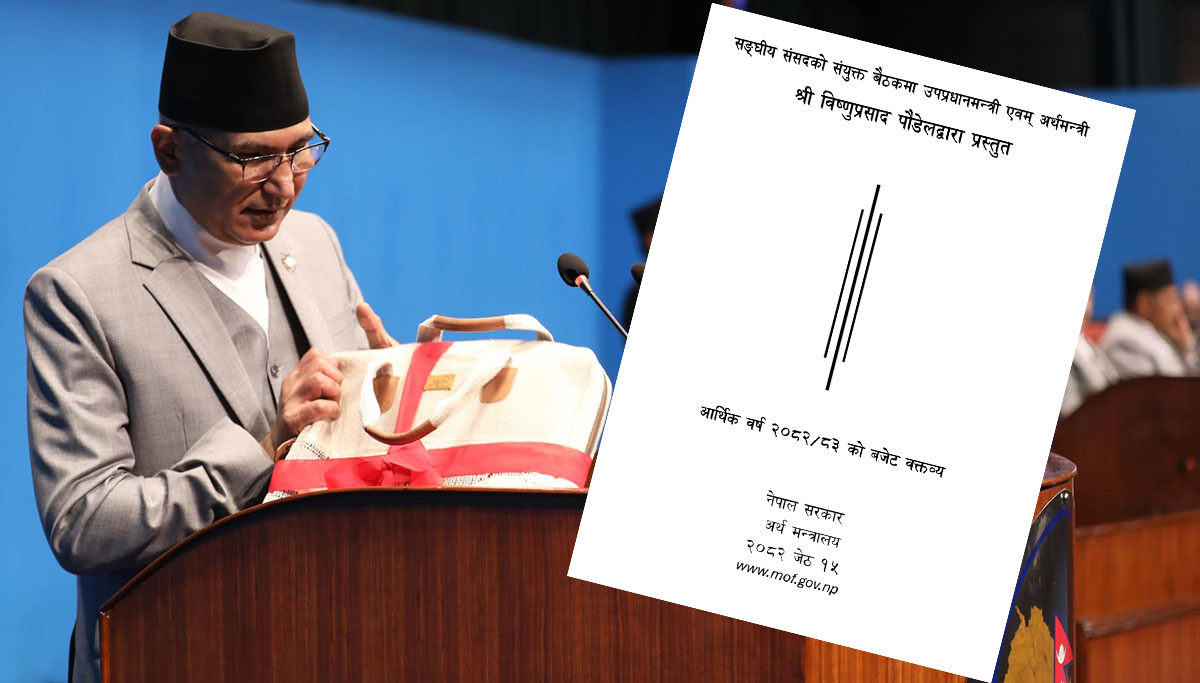
Agriculture Modernization: Transforming the Economy Budget 2082/2083 in Nepal
Mechanization and Commercialization of Agriculture
Agriculture will be mechanized and commercialized to boost production and productivity. Consumption of locally produced nutritious food will be promoted. Food sovereignty will be guaranteed. Surplus agricultural labor will be redirected toward productive sectors.
Maximizing Use of Cultivable Land
Farming through collective, cooperative, and private farms will be expanded. Concrete programs will be implemented to ensure self-sufficiency in major food grains, vegetables, fruits, milk, and meat.
Support for Superzones and Irrigation Expansion
Under the National Agricultural Modernization Program, Rs. 3.5 billion has been allocated for capital grants and concessions for 21 superzones and 206 zones in agriculture and livestock. The program aims to expand 15 crop sectors over 4,850 hectares with modern technology. An additional 6,000 hectares will receive irrigation through small-scale infrastructure. Capital grants will also support block programs at the provincial level and pocket programs at the local level.
Grants for Large-Scale Farming Areas
The scope of existing zones and superzones will be expanded. Commercial farming or livestock activities on land equivalent to a zone or superzone through private, group, lease-based, or cooperative efforts will be eligible for equal grant facilities.
Rice Self-Sufficiency Program in Terai and Inner Madhesh
A rice self-sufficiency program will be implemented in 22 districts of Terai and Inner Madhesh within two years by promoting Chaite Dhaan (spring rice) farming. This is expected to yield an additional 1.2 million metric tons of rice. Rs. 330 million has been allocated for irrigation infrastructure for this purpose.
Promotion of High-Value Crops in Hill Regions
High-value crop farming will be promoted in 80 local levels of mid- and high-hill districts in Lumbini, Karnali, and Sudurpaschim provinces. Rs. 830 million has been allocated for this initiative.
Fertilizer Supply and Organic Agriculture
Supply of chemical fertilizers will be increased to 600,000 metric tons. Rs. 28.82 billion has been allocated for fertilizer subsidies. Preparations will be made to establish a chemical fertilizer plant through the Investment Board. Rs. 400 million has been allocated for organic farming to maintain soil quality and boost productivity.
Productive Use of Fallow Land Near Highways
Agricultural productivity will be promoted on fallow land along the Pushpalal Mid-Hill and Madan Bhandari Highways. Investment will support expansion of cash crops, livestock, high-value fruits, non-timber forest products, fodder, and agroforestry systems.
Minimum Support Price and Market Access
Minimum support prices for major crops such as rice, maize, wheat, sugarcane, and coffee will be declared at least 15 days before planting. Food and Trading Company Limited will purchase these products if market shortages arise. Pre-harvest purchase agreements will be arranged.
Mandatory Quality and Pesticide Testing
Mandatory quality and pesticide testing will be enforced for food grains, vegetables, fruits, meat, and dairy products before they reach the market. Rapid residue testing will be conducted at wholesale markets, and unfit produce will be destroyed immediately. Budget has been allocated for equipment, personnel, and mobile units for pesticide testing.
Soil Testing and Local Seed Promotion
Mobile soil testing camps will be conducted to improve soil fertility and promote appropriate crops. Registration and expansion programs for local and indigenous seeds will be implemented.
Export Certification and Laboratory Upgrades
To boost exports of organic fruits, vegetables, meat, and other high-value products, laboratories for plant, food, and animal quarantine will be upgraded to meet international standards.
Certification and Disease-Free Zones
Subsidies will be offered on lab testing and organic certification of agricultural products. Zoning and compartmentalization will be carried out in Sindhuli and Makwanpur to declare them disease-free zones for Foot and Mouth Disease.
Wildlife Crop Damage Mitigation and Alternative Cropping
Measures will be taken to reduce crop damage caused by wild animals such as monkeys, wild boars, and blue bulls. Cultivation of turmeric, tarul, tea, coffee, ginger, chili, and other crops will be encouraged in monkey-affected areas. Floriculture will also be promoted.
Youth Engagement and Agri-Ecosystem Strengthening
A strong ecosystem involving land, inputs, insurance, purchase agreements, and markets will be developed to attract youth into agriculture. Research will be made result-oriented and aligned with climatic and farming systems. Private sector investment in seed variety research and intellectual property registration will be encouraged.
Meat Export and Livestock Productivity
Large-scale farms will be promoted for quality meat production to support export potential. Productivity will be increased through artificial insemination of 850,000 livestock. Rs. 850 million has been allocated to produce 5.5 million vaccine doses for disease control.
Fingerling and Seedling Production
In the next fiscal year, 42.8 million fish fingerlings and 1 million fruit saplings will be distributed. Coffee nurseries will be established in 20 promising local levels to distribute 1 million plants.
Food Security and Supply Chain Infrastructure
Food stocks will be maintained in the National Food Security Reserve and SAARC Food Bank. Joint investment from the public and private sectors will support infrastructure for safe transportation, storage, and market access. Supply chains and market information systems will be improved to ensure producers benefit from the value chain.
Completion and Operation of Major Agricultural Markets
Nine large agricultural markets under construction are expected to be completed and brought into operation. In Semlar, Rupandehi, modern infrastructure will be developed to support the collection, processing, marketing, and export of agricultural products.
Export Promotion Through Standards and Branding
Quality standards, lab testing, and branding systems will be developed for cardamom, tea, coffee, ginger, turmeric, oranges, Akabare chili, churpi, dairy products, and other goods to promote exports.
Insurance Access for Small and Medium Farmers
Access to crop and livestock insurance programs will be expanded for small and medium farmers. Rs. 2.3 billion has been allocated for insurance premium subsidies.
Agri-Information Access Through Digital Tools
To provide farmers with timely updates on weather, crop prices, and input availability, a “Kisan App” will be developed and SMS services will be streamlined.
Total Allocation for the Agriculture and Livestock Ministry
Rs. 57.48 billion has been allocated for the Ministry of Agriculture and Livestock Development.



